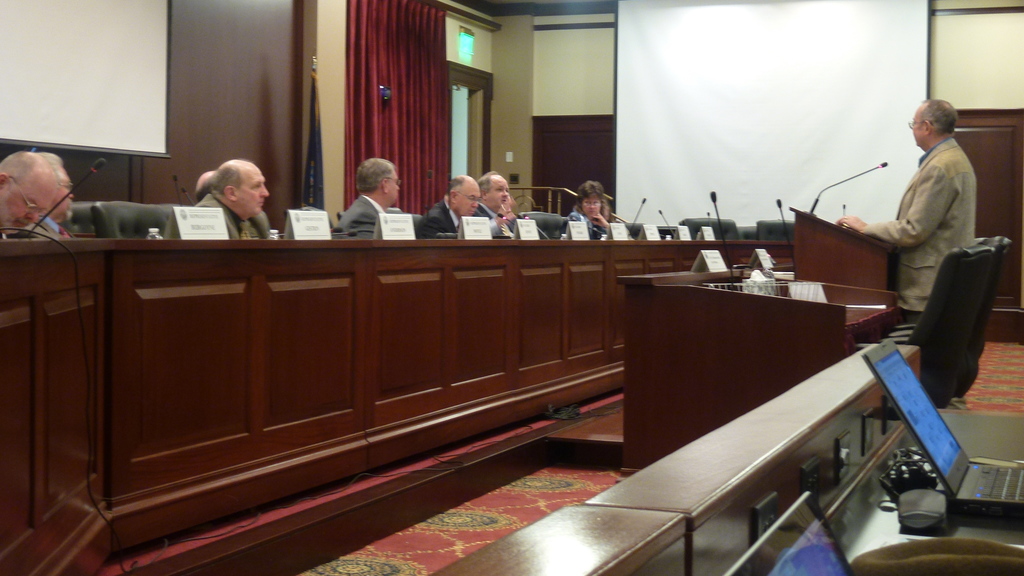
On Wednesday morning, lawmakers got an earful — and a sharply divided one at that.
They heard from some Idahoans who want to see the state assume management of public lands. They labeled federal lands policies a dismal failure, and said state management would provide more money for schools and other public services.
They also heard from Idahoans who staunchly oppose a transfer. They say the state will not be able to resist the temptation to sell off newly acquired lands to private bidders, compromising access for recreation.
The decision will fall, eventually, to the Legislature. A legislative “interim committee” is studying the public lands transfer issue; its recommendations are due in time for the 2015 session.
On Wednesday, the committee began its fourth meeting with a public hearing. About 100 people attended the morning session, and more than two dozen people testified. A second public comment session is scheduled for Wednesday afternoon.
The morning testimony encapsulated the public divide over the public lands issue — and the groups and camps lining up on both sides.
Several supporters identified themselves as members of tea party groups. For them, a transfer is partly a matter of philosophy; they say it would put Idaho on equal footing with Eastern states that were given control over their lands upon statehood. They also said it would wean the state away from unreliable federal funding. “I don’t feel blessed to be a sucker,” said Chad Inman of the Gem State Tea Party.
Many opponents aligned themselves with sportsmen’s groups, and said unfettered access to public lands is a sacred part of the state’s heritage. “There’s nothing that restricts access like a ‘No Trespassing’ sign,” said Jack Trueblood, the son of noted Idaho outdoor writer Ted Trueblood.
The potential stake for public education — and the public school endowment — could hinge on the sale of public lands. Under a resolution passed by the 2013 Legislature, 5 percent of the proceeds from lands sale would go into the public schools endowment. The rest would go toward federal debt reduction.
Several supporters of a lands transfer — including Idaho County Commissioner Jim Chmelik, one of the proposal’s most vocal advocates — stopped short of advocating land sales.
